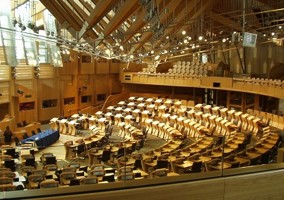A planned increase to the national living wage (NLW) next year could hit charities “hard” and put them under “additional fundraising pressure”, NCVO has warned.
Last week, the Low Pay Commission issued a statement in which it set out its approach to the minimum wage rates that will take effect from April 2025.
The Commission said the next NLW increase should take the cost of living into account and forecast inflation up to March 2026 and “not fall below two-thirds of median hourly earnings”.
It estimated that the current NLW of £11.44 for people aged 21 and over should rise to £12.10 to maintain that two-thirds target.
Sector bodies including NCVO said that charity workers should be paid fairly but warned that the proposed increase would impact organisations facing financial pressures.
The Charity Finance Group (CFG), Charity Retail Association (CRA) and Hospice UK all urged the government to help cover any wage increases.
NLW increase estimate ‘may continue to rise’
The Commission’s statement reads: “Our central estimate is that an NLW increase to £12.10 (5.8%) would be required to maintain the bite (the ratio of the NLW to median hourly pay) at two-thirds of median earnings.
“However, predicting this figure is challenging, so we project a range around our central estimate which runs from £11.82 to £12.39,” it said.
“We also believe our central estimate (and the ranges around it) may continue to rise over the rest of the year because earnings growth in 2024 so far has been stronger than forecast.”
The Commission added that if average wage growth continues to surpass inflation, “then the increase needed to maintain the two-thirds bite will exceed that required to keep pace with expected inflation”.
“Effectively, as economic conditions stand today, this makes the two-thirds bite a ‘floor’ to our recommendations,” it said.
“We’d only recommend an NLW below the ‘floor’ if doing so was necessary to prevent substantial negative outcomes, such as significant job losses among low-paid workers.
“Conversely, the remit says how important it is to ‘boost low earnings’, so there’s scope to recommend increases above the ‘floor’.”
‘Some charities may have to make difficult decisions’
Raghvir Dhaliwal, head of people, culture and inclusion at NCVO, said any changes will mean “charities need to allow for an increase to their overall wage bills, and for those organisations who might be struggling already, this could hit them hard”.
“However, no charity would disagree that their employees should get fair pay for their work and receive a wage that enables them to afford the things they need to live,” she said.
“What changes like this do is force some charities to make difficult decisions about where this money comes from. What charities will do, as they always do when costs increase, is find ways to absorb these additional costs where they can.
“This could put charities under additional fundraising pressure, meaning they need to reduce their services, or could mean money set aside for additional benefits or wellbeing programmes are affected, which could affect staff retention.”
CFG head of policy Richard Sagar said an NLW increase is “much needed by people as the cost-of-living crisis continues”.
However, he added: “We’d also expect to see government grants and contracts for charities take into account the inflationary uplift, otherwise it will put increased financial pressure on them.
“Charities will need to be planning ahead now, especially if they are concerned that any increase will impact their sustainability. Sudden increases in costs can catch charities out, so good forecasting and financial planning is vital.”
CRA: Charities should not ‘bear the entire burden’
Robin Osterley, chief executive of the CRA, agreed that the government should consider “a corresponding increase in the grants and fees payable to charities, who often have contracts with the public sector which are difficult to vary as costs increase”.
He said: “It seems wrong that the public sector should make charities bear the entire burden of these increases.
“Charity retailers, in common with their parent charities as well as retail in general, are subject to significant cost pressures.
“These do directly affect the amount of money going to good causes; and an increase in the NLW does of course have that effect, although most charity shop workers receive more than the NLW anyway.
“That said, as organisations operating for the benefit of society as a whole, we’re conscious of the huge benefits to people and communities that the NLW system has brought, and we would in no way want to argue against an increase in wages for the most needy and vulnerable in our society.”
Hospice UK: ‘Government needs to provide immediate support’
Craig Duncan, chief operating officer at Hospice UK, said that although his organisation supports the principle that all staff should be paid a fair wage, it is “concerned about how the hospice sector will cope with this”.
He said government funding had already “not kept pace with rising costs” faced by hospice charities and called for an increase in financial support.
“UK hospices are already operating in the most challenging financial environment seen in 20 years, with some services beginning to close or be scaled back.
“As vital partners to the NHS, hospices must remain competitive to attract skilled staff, but community fundraising cannot cover such a large funding gap.
“We urge the government to recognise the critical role hospices play and provide immediate support to cover these increased costs before more pressure falls on the NHS.”
Related articles












